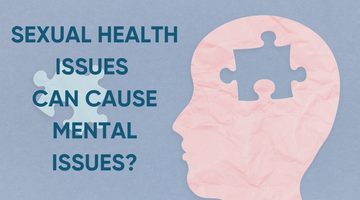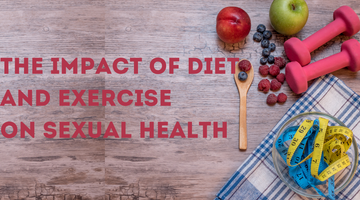
Sexual health is a crucial aspect of overall well-being and can significantly impact one's mental health if not addressed properly. Sexual health issues, such as sexual dysfunction, sexually transmitted infections (STIs), and unwanted pregnancy, can lead to feelings of anxiety, depression, and low self-esteem. In this blog, we will discuss the relationship between sexual health issues and mental health and how addressing these issues can lead to better mental health outcomes.
Sexual dysfunction is a common sexual health issue that can cause mental health issues. This can refer to problems with sexual desire, arousal, orgasm, and pain during sexual activity. Sexual dysfunction can cause feelings of embarrassment, frustration, and low self-esteem, which can lead to depression and anxiety. For some individuals, the physical and emotional discomfort associated with sexual dysfunction can cause them to avoid sexual activity altogether, leading to further emotional distress and relationship problems.
STIs are another common sexual health issue that can cause mental health issues. The stigma associated with STIs can lead to feelings of shame and anxiety, which can have a negative impact on one's self-esteem and overall mental health. The fear of transmission and the impact of an STI on one's sexual and reproductive health can also contribute to anxiety and depression. In addition, the physical symptoms of an STI can cause further distress and discomfort, further exacerbating mental health issues.
Unplanned pregnancy can also have a significant impact on one's mental health. The stress and uncertainty of an unexpected pregnancy can cause feelings of anxiety and depression, especially if the individual is not in a position to provide for a child. The pressure to make a decision about the pregnancy, as well as the physical changes and responsibilities associated with parenting, can also contribute to stress and anxiety.
It is important to address sexual health issues as soon as they arise in order to minimize their impact on mental health. Seeking professional help, such as talking to




